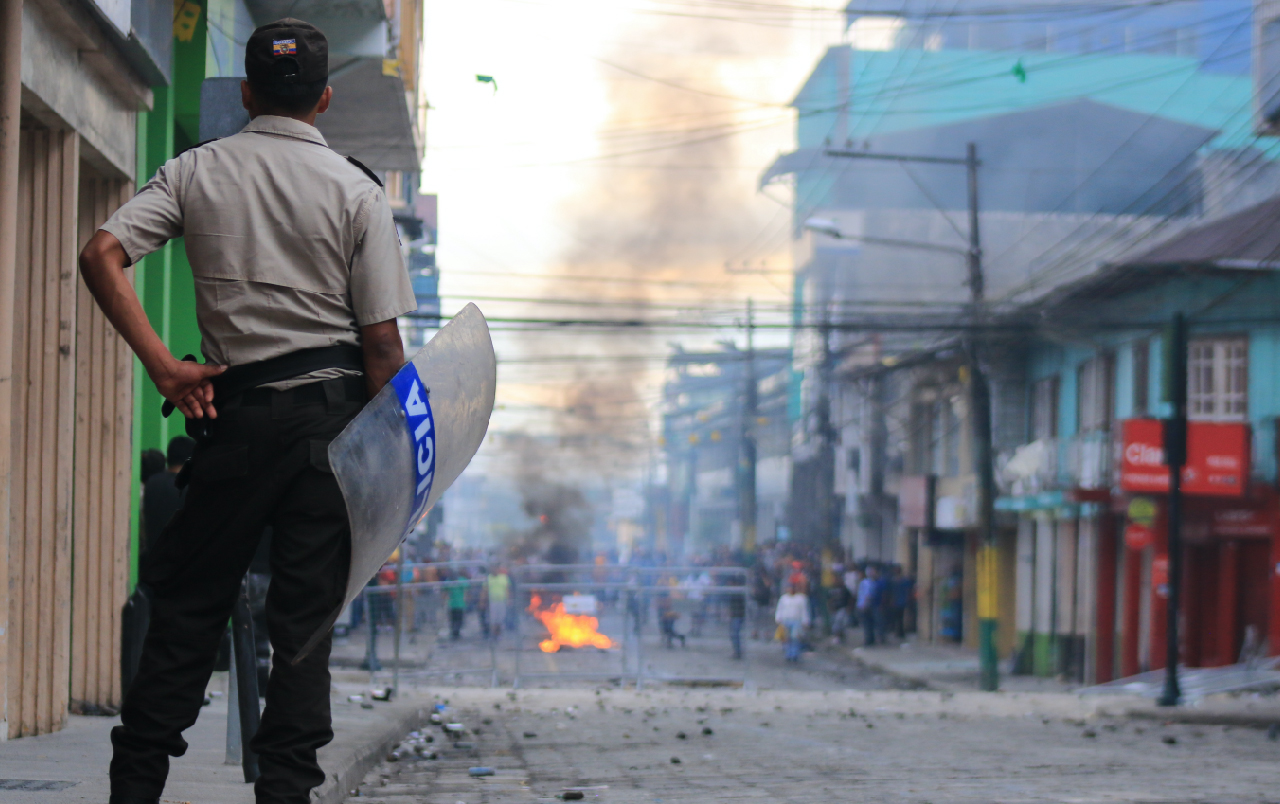Investment in the tourism sector is an effective catalyst for the economic and social reactivation of a territory after a…
Civil Society Organizations (CSOs) play an essential role in ensuring human rights, transparency and citizen’s participation. Their connections to and work with marginalized communities and the focus on advocacy and accountability are critical to a society’s wellbeing. Without them, we cannot build societies that ¨leave no one behind¨. The role of CSOs is particularly relevant for the achievement of SDG 16. It aims to ¨promote peaceful and inclusive communities for sustainable development, provide access to justice for all and build effective, accountable and inclusive institutions at all levels¨. Yet, the civic space is shrinking worldwide.
Challenges facing Civil Society Organizations
Restrictions, states of emergency and unprecedented measures taken by Governments across the globe have limited civil and political rights. According to the 2020 CIVICUS Monitor, only 3.4% of the world’s population lived in countries with open civic space even before the pandemic. It means that very few countries completely respect, in policy and practice, the freedoms of assembly, association and expression. In Latin America, three countries (Chile, Ecuador and Costa-Rica) were downgraded in 2020, and only one country, Uruguay, has the highest rating.
Latin America is the most unequal continent in the world. Here, CSOs face several hurdles, in addition to restrictions in the freedoms of assembly and expression. Another is financial sustainability. Only limited funding is directed to the continent, both by international development cooperation and by local philanthropic initiatives. Because some countries in the region ¨graduated¨ to middle-income countries, resources were limited even further. The new status masks the large trials vulnerable populations face, with the pandemic deepening these problems. The few available resources were redirected to address the health crisis. Besides, many organizations were not equipped to implement virtual work and had trouble adjusting. Others had to put their work on hold or close their doors entirely. The mobility restrictions didn’t allow them to provide direct services. It is especially true in smaller cities. According to a recent survey of 119 CSOs in Ecuador, 84% indicated that their most important need was access to funds.
How civil society contributes
CSOs’ role is not limited to providing direct services. They play a crucial role in promoting transparency and accountability. For instance, the Latin American Anti-Corruption Network (REAL) has published reports on the level of transparency of governments during the pandemic. They show that very few countries have periodic and accessible data on public spending during the pandemic. Also, civil society has direct access to the grassroots level. It can raise the voice, priorities and concerns of excluded populations. These groups suffered the most during the current global crisis.
In an environment where governments have faced unprecedented economic shocks, it is fundamental that their decisions are evidence-based. As an example, Grupo FARO, an Ecuadorian-based think tank, shifted its research agenda during the crisis. It launched the ¨Taking the pulse during the pandemic¨ initiative. The research centre produced more than 30 factsheets during the first six months of the pandemic. Likewise, the think tank network Southern Voice generated the COVID-19 digital knowledge hub. It provides insights from across the Global South on how the pandemic has affected the 2030 Agenda. As we can see, civil society promotes citizen participation through traditional and innovative channels (such as implementing innovation laboratories and citizens generated data) to strengthen democracies.
Time for a new social contract
Promoting a new social contract in this post-pandemic world requires collective action. It also needs a thriving civil society to encourage participation, transparency and innovation. The pandemic opens the door to new possibilities, where equity and justice are at the centre of recovery.
To achieve this, the international cooperation system and societies need to recognize the contributions of CSOs. But more importantly, they need to ensure an open civic space, where civil and political rights are guaranteed. Promoting peaceful and inclusive societies requires providing permanent channels for participation and respecting freedoms of expression.
It is imperative that the new social contract puts equity and social justice at the centre of development. Enabling an environment for a thriving civil society is crucial. We need active citizen’s participation and clear accountability from institutions. A new social contract should ensure long-term changes. It requires that Latin-American networks of CSOs are united to ensure that the peaceful right of expression and protest is protected. Likewise, it should include regional research efforts that highlight common challenges and identify solutions that could be upscaled.
Finally, given the critical financial restrictions government and civil society organizations face, a fundamental change will require a shift in how multilateral organizations establish their priorities. They need to implement more flexible funding mechanisms and include CSOs as executing partners. It would be a new model of collective impact, where public-private-social alliances are incentivized. It could be the opportunity to design and implement innovative solutions that address structural challenges.
The global health, economic and social crisis generated by the Covid-19 pandemic has dramatically revealed how the most vulnerable populations have been disproportionally affected. Already existing structural problems and inequalities have only been exacerbated. In this challenging environment, it is pivotal to implement bold policies and actions. The world requires multi-sector participation and collaboration, as well as an active role of civil society organizations.
Text editor: Gabriela Keseberg Dávalos


